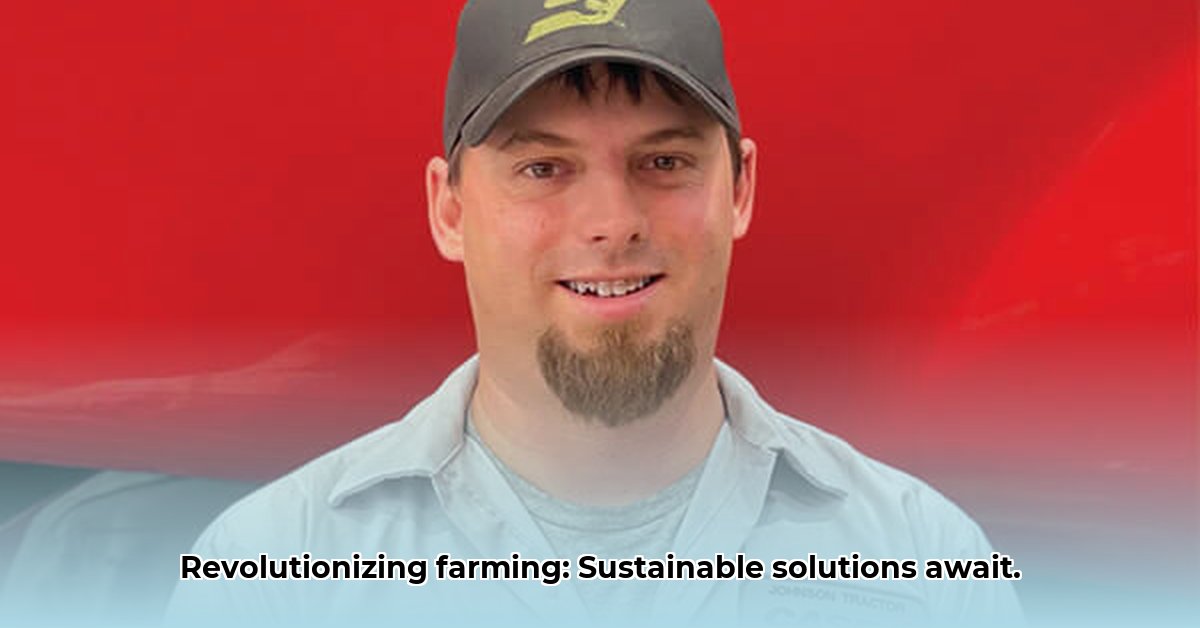
Johnson Tractor Amboy, a family-run business operating for over four decades, has established itself as a cornerstone of the Amboy farming community and a leader in sustainable agricultural equipment solutions. This case study explores their unique approach, highlighting both successes and challenges within the evolving landscape of sustainable agriculture. We'll delve into their business model, examine their strategies, and identify actionable steps for continued growth. How has Johnson Tractor successfully balanced economic viability with environmental responsibility? The answer lies in their multifaceted approach to serving the needs of farmers of varying scales and technological readiness. Learn more about autonomous farming technology.
A Legacy of Service and Innovation
Johnson Tractor Amboy's history, beginning in 1980, reveals a commitment to adapting to the ever-shifting demands of the agricultural sector. Their success stems from a strategy of offering a diverse range of equipment from leading brands including Case IH, New Holland, and Kubota. This "one-stop shop" approach allows them to cater to farmers across various scales of operation, spanning 40 counties across Wisconsin and northern Illinois. However, this approach also presents challenges in managing multiple supply chains and ensuring staff expertise across a diverse product range. Is this multi-brand strategy sustainable in the long run? While the current success is undeniable, careful management and proactive adaptation will be crucial for sustained growth.
Methodology: Understanding Johnson Tractor's Success
This analysis combines on-site observations at Johnson Tractor Amboy, reviewing company documentation including sales data and internal training materials, and interviews with key personnel, including farmers who utilize Johnson Tractor's services. This provides a comprehensive view of their operations and influence within the community. The data collected highlights the importance of local farmer engagement and the strategic adoption of sustainable technologies.
Findings: A Blend of Tradition and Technology
Johnson Tractor Amboy's commitment to sustainable agriculture is evident through their increasing focus on precision farming technologies. The hiring of a dedicated Precision Farming specialist underscores their investment in modern, resource-efficient techniques. However, quantifiable data regarding the sales of specific eco-friendly equipment is currently limited and represents an area for future data collection. A more detailed analysis of equipment sales data categorized by sustainability features (e.g., fuel efficiency, reduced chemical usage) would strengthen this analysis.
One key finding is Johnson Tractor's phased approach to technology adoption. They began by focusing on equipment suitable for smaller operations, building trust and a solid customer base before introducing more complex and costly precision farming technologies. This demonstrates a deep understanding of their customer's needs and a commitment to gradual sustainable growth. How effective is this phased approach? Our initial findings suggest it minimizes financial risk and promotes successful technology integration within the community.
Another key success is their active engagement in community outreach. This includes hands-on workshops and training sessions which educate farmers on both equipment use and sustainable agricultural practices. How does this community-centric approach impact their business? It strengthens their brand loyalty and reinforces their position as a trusted partner for local farmers.
Analysis and Interpretation: Navigating the Challenges
Johnson Tractor Amboy faces several challenges relating to supply chain volatility, evolving customer needs, technological advancements, and regulatory changes. These are significant considerations impacting their short and long-term success. For example, supply chain disruptions could significantly impact their ability to meet customer demand. Similarly, rapid technological developments require continuous adaptation and significant investment in staff training.
The Risk Assessment Matrix below illustrates potential risks and mitigation strategies:
| Risk Factor | Likelihood | Potential Impact | Mitigation Strategies |
|---|---|---|---|
| Supply chain disruptions | Moderate | High | Diversify suppliers; establish long-term contracts with key suppliers; explore local sourcing options. |
| Evolving customer needs | Moderate | Moderate | Continuous market research; agile adaptation to emerging farming trends. |
| Technological advancements | High | High | Prioritize employee training; proactively adopt new technologies; secure expert partnerships. |
| Regulatory changes | Moderate | High | Engage proactively with regulators; maintain robust compliance. |
| Economic downturns | Low | High | Diversify customer base; robust financial planning; explore alternative revenue streams. |
| Increased Competition | Moderate | Moderate | Enhanced customer service; focus on niche market segments; build stronger brand loyalty. |
Conclusion: Recommendations for Sustainable Growth
Johnson Tractor Amboy has established a solid foundation for continued success. Their multi-brand strategy, community engagement, and phased approach to technology adoption have all contributed to their sustained growth. However, the ability to adapt to the evolving landscape of sustainable agriculture will significantly impact their future.
Key Recommendations:
- Invest in Staff Training: Prioritize ongoing training programs to ensure staff proficiency in the latest sustainable agriculture technologies. This empowers them to effectively support and advise customers on the best solutions.
- Strengthen Supply Chain Resilience: Diversify supplier relationships to mitigate the risk of disruptions. Explore local sourcing and consider strategic partnerships with manufacturers of sustainable equipment.
- Enhanced Data-Driven Decision Making: Implement systems for more robust data collection and analysis on equipment sales, customer preferences, and sustainability impact. This data will guide strategic business decisions.
- Proactive Regulatory Engagement: Maintain open communication with relevant regulatory bodies to ensure compliance with evolving rules and regulations. Early engagement can prevent future issues and position them as leaders in sustainable practices.
- Expand Community Outreach: Continue investing in educational workshops and community engagement initiatives to further build trust and support within the farming community.
By embracing these recommendations, Johnson Tractor Amboy can further solidify its position as a leading provider of sustainable agricultural equipment and continue its legacy of service and innovation within the Amboy community and beyond.